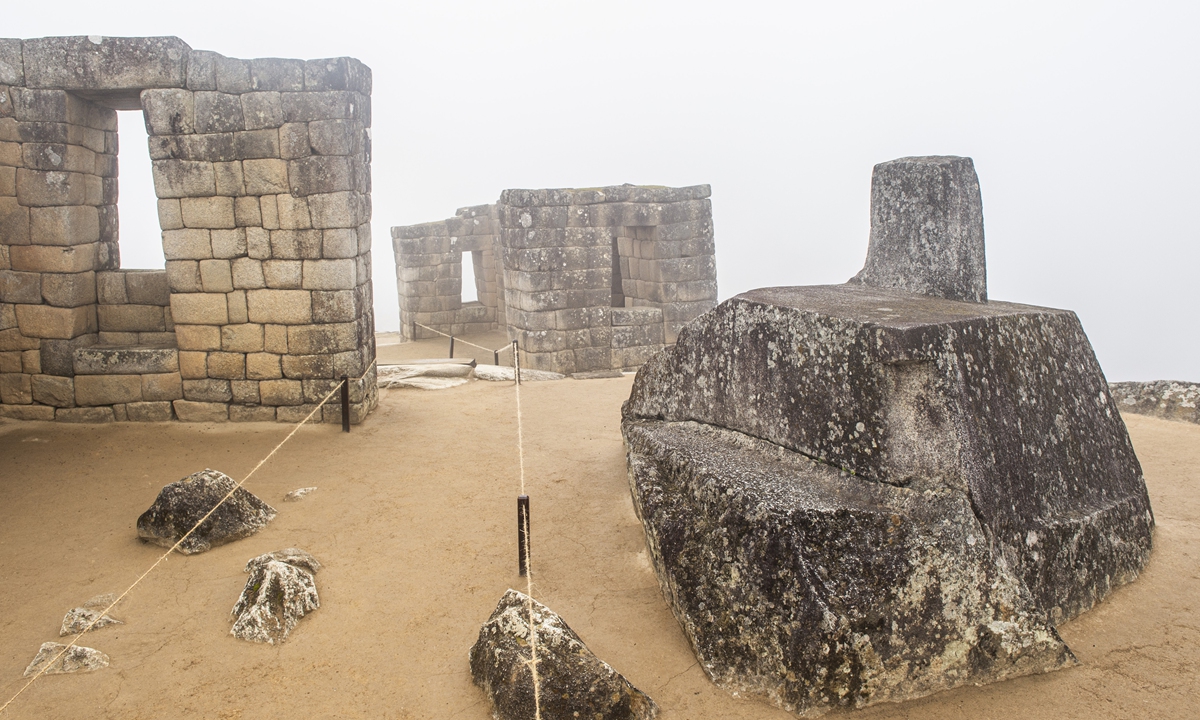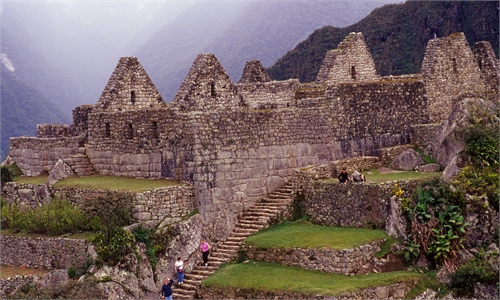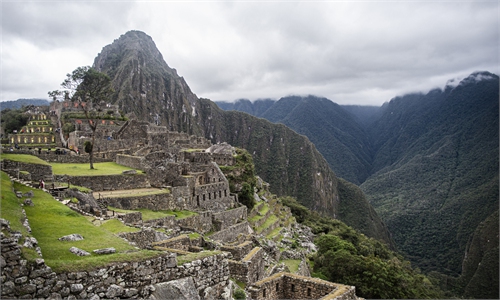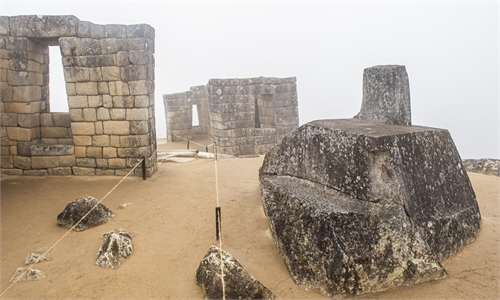ARTS / CULTURE & LEISURE
‘Paddington’ bears tour crowd-free Machu Picchu amid pandemic

View of the Intihuatana ("Tie up the Sun" in Quechua) stone, used by Inca priests for astronomical observations, at the archaeological site of Machu Picchu on November 2. Photo: AFP
Two members of South America's only bear species - a mother and her cub - have been spotted exploring the ruins of the Inca citadel of Machu Picchu, where tourist numbers have been restricted due to the pandemic.
The pair of spectacled bears, also known as Andean bears, were captured on film clambering around the mountainous site's dry-stone walls before slinking off into the jungle, Peru's culture ministry said.
With the absence of tourists due to the coronavirus pandemic, the bears - said to be the inspiration for the children's book character Paddington Bear, who came from the jungles of Peru - have been able to explore where they would otherwise avoid.
Biologist Ernesto Escalante, who is in charge of the Machu Picchu sanctuary surrounding the archaeological site, said the mammals are naturally fearful of humans.
The spectacled bear is classified as "vulnerable" on the red list of threatened animal species of the International Union for Conservation of Nature (IUCN).
It is the only surviving bear species in South America and the last of the short-faced bear subgroup.
It is a small omnivorous mammal, standing between 1.3 meters and 1.9 meters tall and weighing between 80 and 125 kilograms.
The dark-colored bear, usually black, gets its name from light patches on its face that form spectacle-like rings around its eyes.
Humans are its main threat, encroaching on their natural habitat and killing bears that damage crops or capture livestock.
Andean bear products are used for medicinal or ritual purposes, according to the IUCN, and in some areas the creatures' meat is highly sought after.
Live bears are sometimes captured and sold.
Machu Picchu was declared a World Heritage Site by UNESCO in 1983.
Visitor numbers are restricted due to the COVID-19 pandemic.



